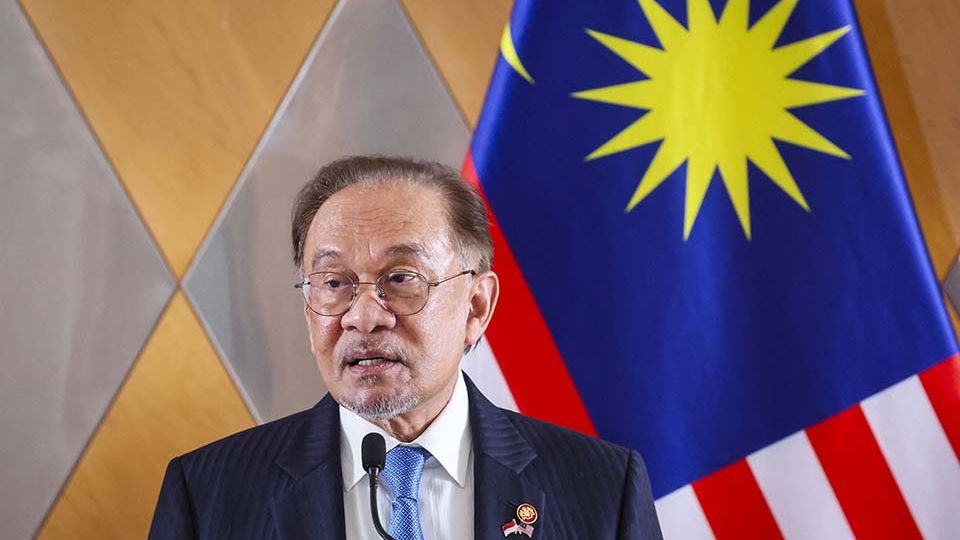March 26, 2025
SINGAPORE – A Hindu temple in Malaysia’s capital will be relocated to a site just 50m away following a heated debate over its fate, as a new mosque will be built on its site. Prime Minister Anwar Ibrahim himself is slated to lay the foundation stone for the mosque on March 27.
The Dewi Sri Pathra Kaliamman Temple is located in Jalan Masjid India, a popular shopping district in downtown Kuala Lumpur that grabbed headlines in August 2024 when an Indian tourist fell into a sinkhole. Her remains were not found despite a nine-day search.
The temple issue has galvanised Hindus who want the modest 130-year-old house of worship to be retained, with rights groups raising questions about religious freedom, legal authority and cultural preservation.
On the other side of the debate are Muslims who want the new mosque built, and others who argue that the temple was built illegally on public land. The land is currently owned by textile company Jakel Group.
The issue has also taken on an anti-government tone, as critics of Datuk Seri Anwar see him as taking an increasingly strident pro-Malay Muslim stance. He has been trying to win over Malay voters, who largely avoided his Pakatan Harapan coalition in the November 2022 General Election.
The Jakel Group, known for its wide array of fabrics and Malay garments, told its critics last week that it has been in negotiations with the temple’s management for years to relocate the building. The textile company bought the 12,000 sq ft land from Kuala Lumpur City Hall (DBKL) in 2012.
On March 25, a temple official and the Malaysian government announced that the Hindu house of worship will be moved 50m away. Temple secretary Karthik Gunaseelan said the relocation deal was reached after negotiations with DBKL on March 24.
“We thank the ministers, elected representatives and the authorities who assisted in reaching this resolution. The new site is nearby and within Jalan Masjid India,” he was quoted as saying by The Star news website.
Digital Minister Gobind Singh Deo said late on March 25 that the land will be gazetted in the name of the temple committee, in accordance with the law.
Amid the controversy, Mr Anwar raised eyebrows on March 25 by hitting out hard at his critics for politicising the issue.
He said he has been accused by “extreme Hindu groups” of “trying to Islamise everything, especially since the mosque in question is to be named Masjid Madani”. Madani, an Arabic term that roughly translates as “modern”, is a catchphrase introduced by Mr Anwar to symbolise his vision of a fair, inclusive and progressive society.
“Even my friends suggested I change the mosque’s name, but what kind of cowardly leader would I be if I did that?” he told the March 25 gathering of mostly Malay civil servants.
“Some people do not want to use the term ‘illegal’. It’s okay, it is just a term. But the temple did not get permission from the landowner, be it city hall, its previous owner, or the company that owns it now. So, our country has laws, and we have to follow the laws,” he added.
“But because we want to maintain a good relationship between the ethnic groups in this country, we are doing something that we did not have to do, which is to engage in peaceful negotiation, because this is their (Hindus) house of worship and (it) should be relocated properly.”
Associate Professor Mazlan Ali, a lecturer at Universiti Teknologi Malaysia’s Faculty of Social Science and Humanities, told The Straits Times: “The issue is law-related. The land is private land. The plan to build a mosque had been made a long time ago. The authorities can take action if houses of worship are built illegally.
“In Malaysia, these issues are played up by politicians. Religious and racial issues are very sensitive in Malaysia and should be resolved through discussions.”
Lawmaker Hassan Abdul Karim, from Mr Anwar’s Parti Keadilan Rakyat, called on March 23 for the issue to be resolved “fairly and prudently”.
He suggested that the temple remain at its current site and that a new mosque be built adjacent to or near the temple to ensure that “racial and religious division can be avoided”.
Others, such as rights group Lawyers for Liberty, have also called for the temple to be allowed to coexist alongside the proposed mosque.
Former law minister Zaid Ibrahim was more direct, accusing the premier of pandering to Malay voters. “This is not about rights and legalities, but about taking care of the feelings of Muslims in the country,” he said in a post on social media platform X on March 22.
- Hazlin Hassan is Malaysia correspondent at The Straits Times.


